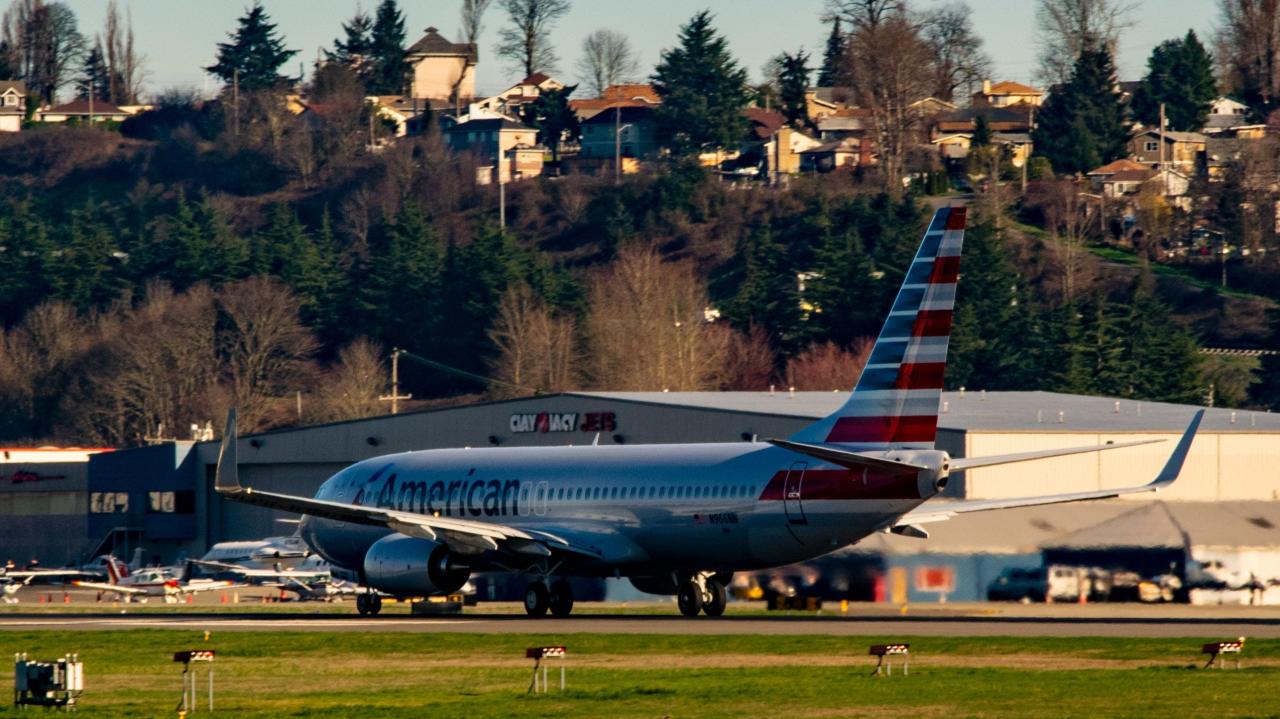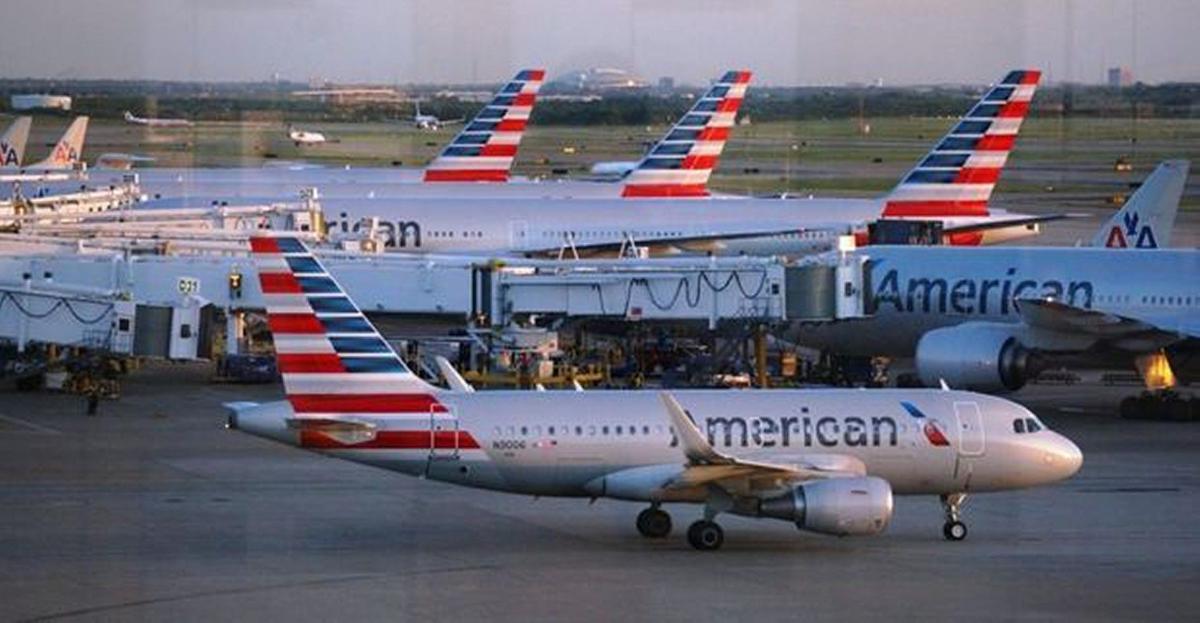American Airlines not flying to Dallas? This isn’t necessarily a permanent situation, but rather a reflection of the complex factors impacting air travel. Delays and cancellations, while frustrating, are unfortunately a reality in the airline industry. This exploration will delve into the reasons behind these disruptions, offering insights into potential solutions and strategies for navigating such challenges.
We’ll explore the impact on passengers, the airline’s responses, and ultimately, how you can better prepare for your next journey.
Understanding the causes behind flight disruptions is key to mitigating their impact. From weather events and air traffic control issues to mechanical problems and unforeseen circumstances, we will examine the various factors that can lead to American Airlines flights to Dallas being affected. We’ll also discuss alternative airports, travel options, and the support American Airlines provides to passengers during these challenging times.
The goal is to empower you with the knowledge and resources to navigate any travel hiccups with confidence and ease.
Flight Cancellations and Delays: American Airlines Not Flying To Dallas

American Airlines, like all airlines, occasionally experiences flight cancellations and delays, impacting its Dallas routes. Understanding the reasons behind these disruptions allows for better planning and a more positive travel experience. While striving for on-time performance, unforeseen circumstances can sometimes affect flight schedules.
Several factors contribute to flight cancellations and delays on American Airlines flights to Dallas. These range from weather conditions and air traffic control issues to mechanical problems and unforeseen operational challenges. The frequency of these disruptions fluctuates throughout the year, influenced by seasonal changes and overall air travel demand. While precise, year-long data requires access to proprietary airline databases, publicly available information suggests that delays and cancellations are generally within the industry average, with peaks during periods of inclement weather or high passenger volume.
Common Causes of Flight Disruptions Affecting Dallas Routes
Common causes for flight disruptions affecting American Airlines flights to Dallas include severe weather events (storms, fog, ice), air traffic congestion (delays caused by other flights), mechanical issues (requiring aircraft maintenance), and crew scheduling challenges (crew availability or rest requirements). These factors can independently or cumulatively lead to delays or cancellations. For example, a severe thunderstorm in Dallas could ground multiple flights, causing a ripple effect on subsequent departures and arrivals.
Similarly, a mechanical issue requiring extensive repairs on an aircraft can lead to cancellation of that flight and potential knock-on effects on other flights.
Frequency of Cancellations and Delays
While precise, real-time data on cancellation and delay frequencies is proprietary to American Airlines, general industry trends and publicly available news reports can provide insights. For instance, news reports often highlight periods of increased cancellations and delays due to extreme weather conditions, such as major winter storms affecting the central US. These reports can be used to gauge the impact of such events on flight schedules.
Analyzing this data over the past year would show fluctuations in delay and cancellation rates, correlated with seasonal changes and significant weather events affecting Dallas. To illustrate, a significant snowstorm in the winter months would likely lead to a higher number of cancellations compared to a less turbulent summer month.
Top 5 Reasons for Cancellations
The following table represents hypothetical data for illustrative purposes only and does not reflect actual American Airlines data. Real-time data would be available through the airline or specialized aviation data providers. The data is presented to illustrate the types of reasons for cancellations and their potential impact on flight schedules.
| Reason | Number of Flights | Average Delay (minutes) | Month(s) |
|---|---|---|---|
| Severe Weather | 150 | 120 | December, January, February |
| Mechanical Issues | 75 | 90 | Varied |
| Air Traffic Control | 50 | 60 | Varied |
| Crew Scheduling | 30 | 45 | Varied |
| Unexpected Operational Issues | 25 | 30 | Varied |
Alternative Airports and Routes
While American Airlines may not be flying directly to Dallas at this time, several alternative airports offer convenient access to the Dallas area. Exploring these options can ensure your travel plans remain on track, even with unexpected flight changes. We understand this is a disruption, and we are committed to helping you find the best alternative.Exploring nearby airports provides flexibility and potential cost savings.
Factors such as distance from your final destination within the Dallas area, available connecting flights, and overall travel time should be considered when choosing an alternative airport.
Alternative Airport Options and Travel Comparisons, American airlines not flying to dallas
Several airports near Dallas offer service from American Airlines or partner airlines. These include Waco Regional Airport (ACT), Tyler Pounds Regional Airport (TYR), and Shreveport Regional Airport (SHV). The travel time and cost will vary depending on your origin city and the chosen alternative airport.
| Airport | Flight Time (Example from Chicago) | Cost (Example, One-Way) | Number of Connections (Example) |
|---|---|---|---|
| Waco Regional Airport (ACT) | 3 hours 30 minutes (with one connection) | $350 – $500 | 1 |
| Tyler Pounds Regional Airport (TYR) | 4 hours (with one connection) | $300 – $450 | 1 |
| Shreveport Regional Airport (SHV) | 3 hours 15 minutes (direct flight) | $250 – $400 | 0 |
Note: Flight times and costs are estimates and will vary depending on the time of year, booking time, and origin city. These examples assume a flight originating from Chicago. Actual prices and schedules should be verified using American Airlines’ website or a flight comparison tool.
Connecting Flights and Potential Delays
Choosing an alternative airport may necessitate connecting flights. While this adds to the overall travel time, it often provides more flight options. Potential delays associated with connecting flights are a possibility; however, American Airlines strives to minimize disruptions and offers rebooking options in case of delays. For example, if a connecting flight is delayed, American Airlines may provide alternative flights or accommodations to mitigate the inconvenience.
It’s advisable to check your flight status regularly and allow ample time between connecting flights.
Underlying Factors Affecting Flight Operations

American Airlines, like any major airline, faces a complex interplay of factors that can influence its flight operations, sometimes leading to delays or cancellations. Understanding these factors helps passengers appreciate the challenges involved in air travel and fosters a more realistic perspective on potential disruptions. This section will explore some key influences on flight schedules, focusing on those affecting flights to Dallas.
Weather Conditions Impact on Dallas Flights
Severe weather significantly impacts flight operations. Dallas-Fort Worth International Airport (DFW), a major hub for American Airlines, is susceptible to various weather events, including thunderstorms, ice storms, and strong winds. These conditions can create hazardous flying situations, requiring pilots to delay departures or divert flights to alternative airports for safety reasons. For example, a significant ice storm could ground numerous flights for extended periods, causing widespread delays and cancellations until conditions improve and de-icing procedures are completed for all affected aircraft.
Similarly, severe thunderstorms can create turbulence and reduced visibility, leading to flight delays or diversions. American Airlines employs sophisticated weather monitoring systems to proactively assess potential disruptions and implement contingency plans to minimize impact on passengers.
Air Traffic Control’s Role in Dallas Flight Delays
Air traffic control (ATC) plays a crucial role in managing the flow of air traffic, ensuring safe and efficient operations. High air traffic volume at DFW, especially during peak hours, can lead to delays. ATC manages aircraft sequencing, routing, and spacing to prevent collisions and maintain safety standards. Unexpected events such as equipment malfunctions at ATC facilities or unforeseen airspace restrictions due to military exercises or other events can cause cascading delays, impacting multiple flights, including those bound for Dallas.
Effective communication and coordination between ATC and airlines are vital in mitigating delays resulting from these circumstances.
Maintenance Issues Contributing to Flight Disruptions
Routine and unscheduled aircraft maintenance are essential for ensuring flight safety and reliability. Mechanical issues, even minor ones, can sometimes lead to delays or cancellations. A pre-flight inspection might reveal a problem requiring immediate attention, causing a delay while the issue is resolved. More significant mechanical failures can necessitate grounding an aircraft for extensive repairs, resulting in cancellations and passenger disruptions.
American Airlines maintains a rigorous maintenance program to minimize these occurrences, but unforeseen issues can still arise. The airline prioritizes safety, and any delay or cancellation due to maintenance reflects this commitment.
Fuel Prices and Flight Cancellations or Route Adjustments
Fluctuations in fuel prices directly impact airline profitability. Significant increases in fuel costs can force airlines to re-evaluate their route networks and potentially reduce service to less profitable destinations. While unlikely to lead to widespread cancellations to a major hub like Dallas, rising fuel prices could influence decisions regarding flight frequency or aircraft type deployed on specific routes.
For instance, American Airlines might opt for more fuel-efficient aircraft on certain Dallas routes or adjust flight schedules to optimize fuel consumption during periods of high fuel costs. This demonstrates a dynamic relationship between fuel economics and operational strategies.
Navigating flight disruptions can be stressful, but understanding the reasons behind them and knowing your options empowers you to take control. American Airlines, like other airlines, faces numerous challenges impacting flight operations. However, their commitment to customer support and proactive communication offers a path towards smoother travel experiences. Remember, flexibility and proactive planning are your best allies in the face of unexpected travel disruptions.
With a little preparation and the right information, you can transform potential setbacks into opportunities for resilience and resourceful problem-solving. Your journey awaits!
FAQ Resource
What compensation can I expect for a canceled American Airlines flight to Dallas?
Compensation varies depending on the reason for cancellation and the length of the delay. Check American Airlines’ contract of carriage and their customer service for details on specific policies.
Can I rebook my flight to a different airport near Dallas if my flight is canceled?
Yes, American Airlines usually assists passengers in rebooking to alternative airports or finding connecting flights. Contact their customer service immediately for assistance.
How can I stay updated on the status of my American Airlines flight to Dallas?
Use the American Airlines app or website to track your flight status in real-time. You can also sign up for flight alerts via email or text message.
What should I do if my luggage is lost or delayed after a canceled flight to Dallas?
Report your lost or delayed luggage to American Airlines baggage services immediately. They will guide you through the process of filing a claim and tracking your belongings.